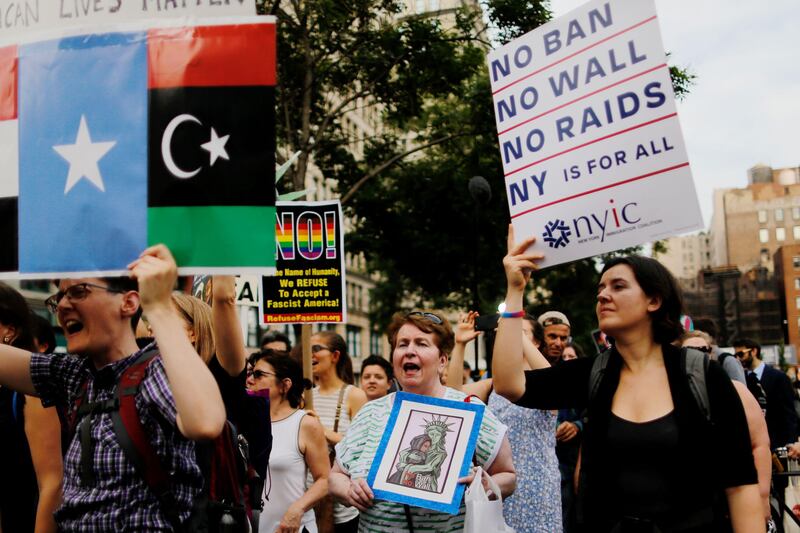All my 12-year old son wanted to do this summer during our visit to the United States was to be part of a political protest. “Protest” was first on his list, or at least it was first on his list after the five pizza places he wanted to visit. He’s interested in politics and in his mind political rallies are something very “American”.
Of course, he is also 12. Those of you who have lived through (or are currently living with) children of this age know that “protest” is sort of their native habitat. Tweens seem to be structurally hard-wired for contrariness. An innocent parental question about school can spark a diatribe about the absurdity of homework and the general uselessness of school, given that global warming will end the world pretty much any minute. It’s a different sensibility from when these people were five and six, when “the rules” were paramount. I’ve always thought that a group of intelligent five-year-olds could solve the world’s problems by simply bossing people around as if they were on a playground: in the span of a day, they’d tell people to sit down, take turns, share their toys and stop being mean.
Tweens, on the other hand, would be terrible diplomats.
The city of New York helped me tick the all-important “protest” off the tween’s to-do list, however, and in a way that not only satisfied my social justice lover, but also offered a beautiful illustration of New York public space in action.
Two days after we got to New York, a demonstration was scheduled in Union Square against the Muslim travel ban that had been reinstated (and several weeks later was again ruled unconstitutional). As we approached Union Square, I could hear music, but the music wasn’t being used to energise demonstrators. Instead, it was the sound track for a public exercise class happening in the main plaza, where about 20 people were jumping and clapping to loud hip-hop as a teacher shouted instructions.
A little further past the fitness folks, we found our demonstration. About 75 people gathered around someone with a megaphone and a small amplifier. I have to say that the exercise class had far better acoustics and shouts of “stretch it out” occasionally overwhelmed the earnest exhortations of the protest organisers.
“We’re here,” I told the tween. He looked around, a bit confused. I think he was expecting (or hoping for) police in riot gear, maybe a scuffle or two – something more dramatic, that is, than people making speeches and leading the crowd in chants. He joined the chanting, timidly at first and then more loudly: “Say it loud, say it clear, immigrants and refugees welcome here.” In true tween fashion, however, he told me to keep my voice down – apparently I was “over-shouting” – and then he stopped chanting altogether to chastise me for taking pictures: “That’s so weird, Mom! Why would you take a picture of that lady?”
The lady in question, standing directly behind him, was Linda Sarsour, the prominent Arab-American activist, whose speech against the ban was poignant and direct. Her speech was made all the more enjoyable for me because the tween not only had to admit that it was okay for me to take her picture, but he also allowed me to post the picture on Instagram: a double victory. Not that I’m keeping score, of course.
Some of the exercisers joined us after their workout and by virtue of being on the edge of the crowd were perfectly positioned to yell back at the few counter-protesters – a tired-looking older couple and three young men, all yelling that the ban was going to keep the country safe. It’s true that exercise and virtue aren’t connected, but it was nonetheless terribly satisfying to have the washboard abs on our side of the protest.
The tween seemed satisfied with this inaugural protest, but as the march drew to a conclusion, he was most concerned with what kind of pizza we were getting for dinner. At 12, politics are important, but pizza is essential.
Deborah Lindsay Williams is a professor of literature at NYU Abu Dhabi





